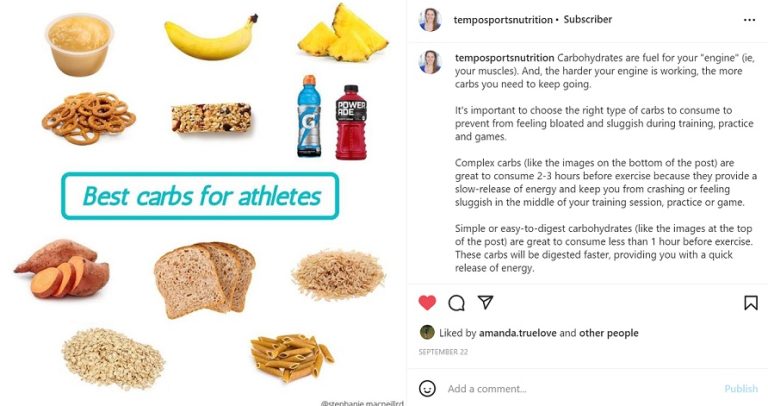8 Reasons Why You are Gaining Weight from Running
Many beginners take up running to lose weight. And it’s a smart choice: running burns calories, improves cardiovascular health, reduces stress, and can help you shed fat.
But here’s the frustrating truth — some people start running and gain weight, or see no change at all.
So what’s going on?
Let’s explore 8 key reasons you might not be losing weight from running — and what you can do to fix it.
Why Am I Not Losing Weight from Running?
1. You’re Eating More Than You Think
You’ve likely heard the phrase: “Abs are made in the kitchen.” That’s because weight loss depends not just on exercise—but also on nutrition.
To lose weight, your body needs to be in a calorie deficit: burning more calories than you consume.
While running increases calorie burn, it also ramps up your appetite. If you respond to that hunger by eating too much—especially calorie-dense or processed foods—you could end up gaining weight instead of losing it.
What You Can Do:
- Eat smarter, not just more. Choose high-quality, nutrient-dense foods like fruits, vegetables, lean proteins, and whole grains.
- Fuel strategically. A carb-rich snack 1–2 hours before your run helps top off glycogen stores without going overboard.
- Avoid calorie bombs. Many energy bars or “runner snacks” are loaded with sugar and unnecessary additives. Stick to whole foods when possible.
2. You’re Gaining Muscle (Not Fat)
It’s entirely possible to gain weight while getting fitter—especially if you’re combining running with strength training or high-intensity intervals (HIIT).
Muscle weighs more than fat by volume, so if your body composition is shifting—more muscle, less fat—you might weigh the same (or even more) while looking leaner and feeling stronger.
How to Tell:
- Your clothes fit better even if the scale doesn’t budge.
- You feel stronger and more energized.
- Your body looks firmer or more toned.
In this case, weight gain is a sign of progress—not a setback. The scale doesn’t tell the whole story.
3. You’re Retaining Water After Hard Workouts
When you run—especially if you’re new to it or increasing your mileage—your muscles experience small tears that trigger inflammation. This healing process often leads to temporary water retention, which can show up as weight gain on the scale.
This is completely normal.
What to Do:
- Don’t panic—your body is adapting and healing.
- Stay hydrated and make sure you’re getting enough rest between runs.
- Focus on recovery, including proper sleep, stretching, and balanced nutrition.
Water weight will regulate as your body gets used to the intensity.
4. An Underlying Condition Like PCOS May Be at Play
If you’re doing everything right—running consistently, eating well, watching portions—and still gaining weight, it could be a medical issue like Polycystic Ovarian Syndrome (PCOS).
PCOS affects hormonal balance and often leads to insulin resistance, which can cause the body to store fat more easily.
What You Can Do:
- Talk to your doctor about your symptoms and consider getting tested.
- Adjust your diet: many women with PCOS benefit from low-glycemic, high-protein, and high-fat diets rather than carb-heavy fuel.
- Work with a registered dietitian who understands hormonal imbalances and can tailor your eating plan accordingly.
Importantly, running is still beneficial for managing PCOS, as long as you’re fueling your body properly.
5. You’re Doing Too Much Steady-State Cardio and Not Enough Variety
Your body adapts to repetitive stress. If you run at the same pace and distance every day, calorie burn becomes more efficient — meaning fewer calories burned.
To continue progressing, mix up your workouts: incorporate sprints, hill intervals, tempo runs, and trail runs. This variation keeps your body challenged and boosts metabolism.
6. You’re Not Sleeping Enough
Sleep is a cornerstone of weight loss. Poor sleep disrupts hunger-regulating hormones (ghrelin and leptin), increases sugar cravings, and elevates cortisol, which promotes fat storage.
Aim for 7–9 hours of quality sleep each night to help regulate appetite, enhance recovery, and keep your metabolism humming.
7. You’re Underestimating Liquid Calories
Sports drinks, recovery shakes, and even coffee beverages can pack hundreds of hidden calories. These drinks often don’t provide the same satiety as whole foods, leading you to overconsume without realizing it.
Stick to water for hydration and read labels carefully when consuming any performance beverages.
8. You’re Experiencing Chronic Stress
Running can help reduce stress, but if you’re constantly under mental or emotional pressure, elevated cortisol levels can work against your weight loss goals. High cortisol can increase fat retention, especially in the belly area.
Pair running with other stress-reducing activities like meditation, yoga, or journaling.
Healthy Ways to Lose Weight While Running
Weight loss isn’t about starvation. It’s about fueling your body smartly, creating sustainable habits, and improving your body composition over time.
Here are six effective strategies:
1. Build Muscle
Many runners focus solely on mileage, but strength training is a game changer. Lifting weights or doing bodyweight resistance work 2–3 times a week helps you burn more calories and fat, both during and after workouts.
Muscle also improves your running economy, helping you run farther and faster with less effort.
Check out our weightlifting guide for runners to get started.
2. Eat Better, Not Less
Your body needs fuel—especially when you’re running. Instead of cutting calories drastically, focus on the quality of the calories you’re eating.
Smart food swaps:
- White rice → Brown rice (for more fiber and complex carbs)
- White potatoes → Sweet potatoes (rich in vitamins A and C)
- Red meat → Salmon (a lean protein with metabolism-boosting omega-3s)
The goal is to support your running and recovery with food that works for you—not against you. Think of food as fuel, not the enemy.
3. Track Your Progress Beyond the Scale
Muscle gain and water retention can mask fat loss on the scale. Instead of relying solely on weight, track other indicators:
- Take body measurements
- Note how your clothes fit
- Keep a photo journal
- Record energy and mood changes
This holistic approach keeps motivation high and gives you a clearer picture of your progress.
4. Practice Mindful Eating
Post-run hunger is real. But eating while distracted can lead to consuming more than your body needs.
Practice mindful eating:
- Eat without screens or distractions
- Chew slowly
- Stop when you’re satisfied, not stuffed
Tuning into your body’s cues helps prevent overeating and supports a sustainable calorie deficit.
5. Time Your Nutrition Around Your Runs
Eating at the right times can improve performance and recovery. Try to consume a balanced meal 2–3 hours before your run and a mix of carbs and protein within 45 minutes after.
This helps replenish glycogen, repair muscle tissue, and reduce overeating later in the day.
6. Stay Consistent with Cross-Training
Adding cross-training activities like cycling, swimming, or rowing challenges your body in new ways, prevents overuse injuries, and boosts calorie burn.
It also gives your running muscles a break while keeping you active — key for long-term fat loss.
Final Thoughts
Remember, running alone doesn’t guarantee weight loss — but it’s a powerful tool when paired with smart habits.
Don’t approach weight loss from a “quitting” mindset (e.g., “I need to quit sugar”). Instead, think about replacing unhealthy habits with better ones.
For example: “I’ll replace fries with baked sweet potato wedges seasoned with sea salt and rosemary.”
This small shift in mindset creates long-term success — and helps you stay positive, consistent, and confident on your weight loss journey.



